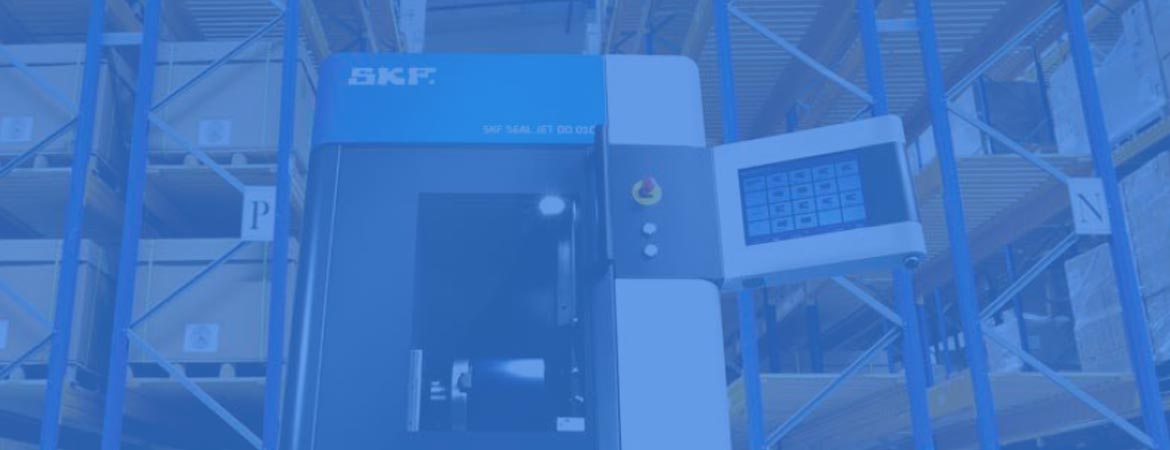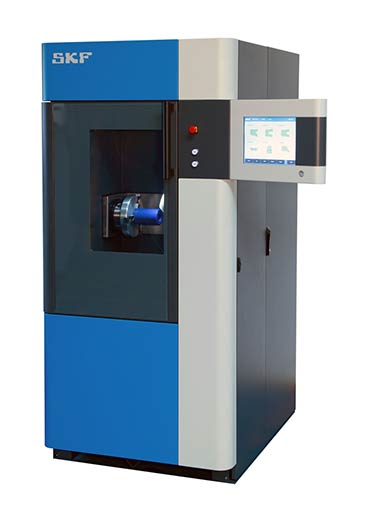
Seal Express is our product which enables us to produce seals and customize as per the customer’s needs. We do this using our SKF machine, a new CNC controlled machining system that enables us to custom machine seals up to a diameter of 200 mm in a wide range of profiles and polymeric materials to meet your application’s needs. Plus, any seals we don’t have or can’t make, we can get them directly from SKF. The benefits include:
- Standard seals in non-standard dimensions
- Increased availability and reduced delivery time
- No need to maintain in-house stock
- Local, single-source access to a comprehensive sealing solutions portfolio
We also undertake Cylinder repair work and provide that service depending on the customer’s request. We are capable of repairing small and large hydraulic cylinders to its original OEM status or restoring its functional status. These repairs are performed in house with our certified service facilities. We also provide modifications of your old cylinder with your present requirements as well as possible, which reduces your new investment cost.
The SKF SEAL JET DD system is engineered with the distributor’s challenges in mind:
- Enables faster machining of seals
- Offers more from a smaller inventory
- Reduces reliance on training.
It adds up to meeting the needs of the end-users and the market, faster.

The SKF SEAL JET DD system offers proprietary machining software with 83 pre-programmed seal profiles, covering the majority of the industrial demand. By proper selection of the seals profile and definition of the main seal dimensions, together with the right material selection, machined standard seals in non-standard dimensions up to a diameter of 200 mm can be manufactured within minutes to meet end-user’s demands. Whenever you need machined standard or customized seals in larger diameters, special materials or with highly customized design, the SKF Machined Seals Centres provide these solutions. When you face high demand of standard seals for shaft seals for rotating equipment or hydraulic seals for reciprocating equipment, the SKF Industrial Seals standard range also is available.

Insights about Sealing Materials
Increased requirements for sealing technology reinforces the importance of selecting the appropriate sealing materials. Sealing materials face demands for higher speeds, temperatures and pressures, and are often confronted with poor lubricating fluids. Fluids like HFA and HFB as well as biologically degradable hydraulic fluids (vegetable oils and synthetic esters) present many challenges for developers of sealing materials.
In the sealing technology, different groups of macromolecular (polymer) substances are used. Macromolecular substances are organic compounds whose molecules consist of several thousands, often even millions of atoms, known as macro, giant, string or chain molecules. They can be created either by modification of highly molecular natural materials (e.g. natural rubber) or by depositing low-molecular elements (so called monomers) through various chemical reactions (synthetic materials, plastics).

Additionally, we offer machined seals made of 25 standard materials that are accessible via the SKF Machined Seals Centres. There we also have a vast range of special materials available to meet very specific application demands like for food and beverage, oil and gas or the hydro power industry, etc.
Thermoplastic elastomers
– Polyurethanes
The thermoplastic elastomers demonstrate the characteristic properties of elastomers over a wide temperature range, but with the processing behaviour of thermoplastics. They can be melted at high temperature and can be processed with traditional thermoplastic processing techniques. Thermo plastic elastomers are soluble and they generally swell less in comparison to their chemically cross-linked equivalents.
- Elastomers
Elastomers are extremely flexible materials that can be expanded by exerting relatively little force. Because of their structure, elastomers have a high elasticity and resilience and usually offer a good compression set. The rubber materials are polymers, which are formed by chemically cross-linked macromolecules with various vulcanization additives. Due to their chemical bonds, they do not melt, but rather begin to decompose at high temperatures. The cross-linking also stops the rubber materials from dissolving or, depending on the medium, swelling or shrinking.
- Thermoplastics
Thermoplastics can be melted. They are essentially harder and more rigid at their application temperature compared to elastomers. Depending on the chemical structure, the properties vary from hard, to stiff, to ductile and flexible. Due to the morphological structure, extensive stretching is non-reversible and moulded parts remain in the deformed state. Engineering thermoplastics are used for back-up rings and guide rings, bushings, etc.



